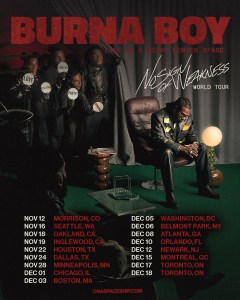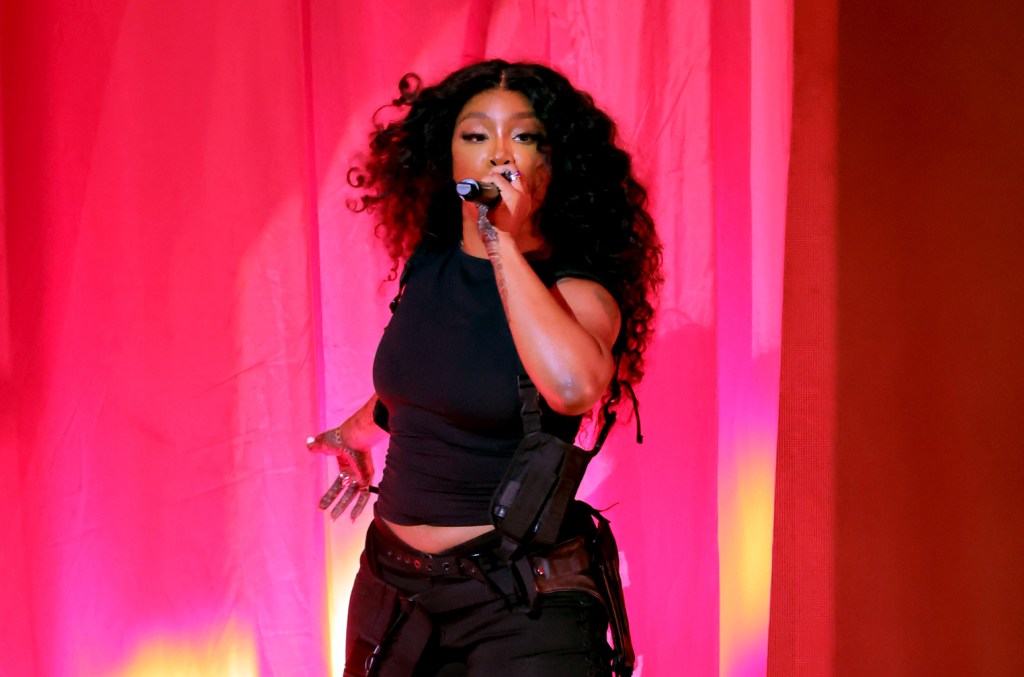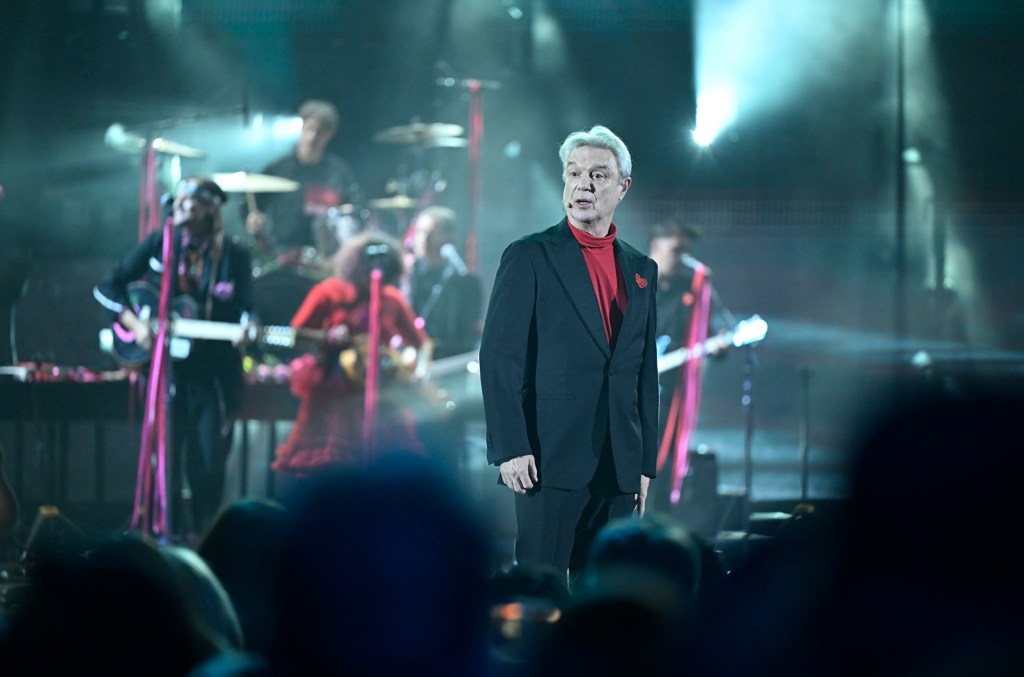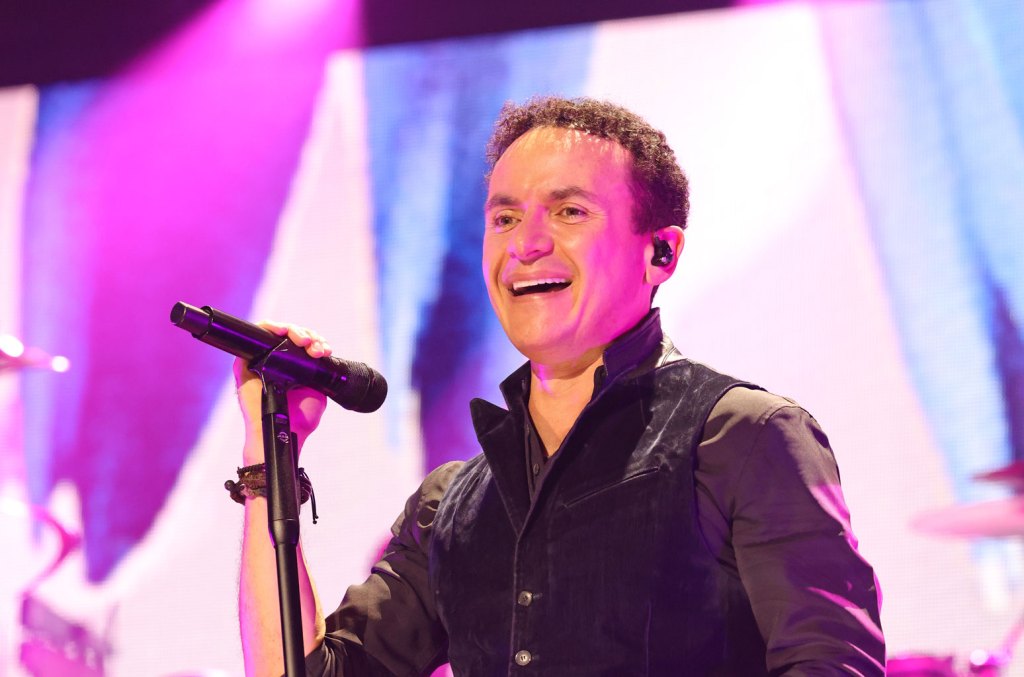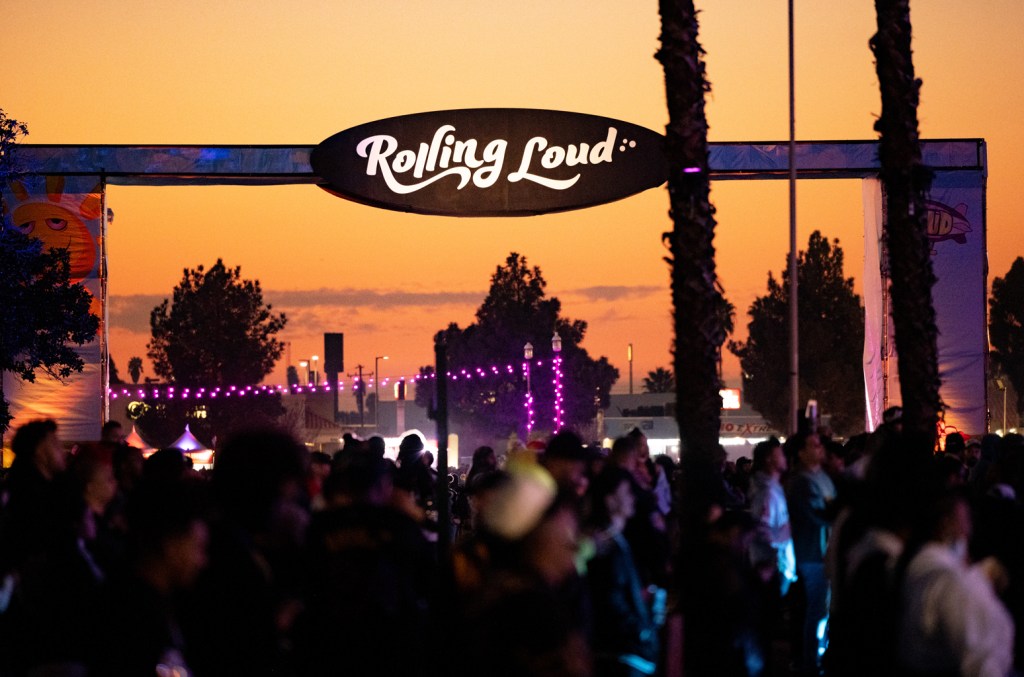Touring
Page: 11
Burna Boy is already planning to take his upcoming album, No Sign of Weakness, on the road this winter with a headlining North American tour, he announced Wednesday (June 18).
The 17-date trek kicks off on Nov. 12 at the Red Rocks Amphitheatre in Morrison, Colo., becoming the first Nigerian artist to headline the iconic venue. The tour will also go through major cities including Los Angeles, Houston, Chicago, Boston and Atlanta before wrapping up with two dates at the Scotiabank Arena in Toronto, Ontario, on Dec. 17 and 18. With the exception of his history-making opening show at Red Rocks Amphitheatre, the No Sign of Weakness Tour will feature the African Giant performing on a 360-degree stage in the middle of the floor.
Burna is releasing his eighth studio album on July 11 via Spaceship, Bad Habit and Atlantic Records. So far, he’s released four singles ahead of the project: “Bundle by Bundle,” “Update,” “Sweet Love” and “TaTaTa” featuring Travis Scott.
Trending on Billboard
No Sign of Weakness will arrive two years after the Afro-fusion superstar’s last album, I Told Them…. The 15-track LP reached No. 31 on the Billboard 200 and No. 2 on World Albums, and earned a 2024 Grammy nomination for best global music album. Singles “Sittin’ on Top of the World,” featuring 21 Savage on the remix, and “City Boys” were also up for Grammys, for best melodic rap performance and best African music performance, respectively.
Fans can sign up for artist presale, which continues through Sunday, June 22, at 11:59 p.m. ET. Artist presales and VIP packages are available Tuesday, June 24, from 10 a.m. to 10 p.m. local time via Ticketmaster. General onsale starts next Friday, June 27, at 10 a.m. local time. Visit Burna Boy’s website for more details and ticket information.
See the dates for Burna Boy’s No Sign of Weakness Tour below.
Burna Boy
Courtesy Photo
Four-time Grammy-winning CCM band Third Day is set to launch its 30th anniversary headlining tour in 2026. The 30-date tour will mark the first time in 11 years that the band’s original four members — Mac Powell, Mark Lee, David Carr and Tai Anderson — will reunite on stage.
Explore
Explore
See latest videos, charts and news
See latest videos, charts and news
The tour will celebrate the three-decade anniversary of their self-titled, major label debut album, which released in 1996 on Reunion Records. That project reached No. 11 on Billboard‘s Christian Albums chart, and spurred hits including “Forever,” “Blackbird” and “Nothing at All.”
Third Day previously embarked on its farewell tour in 2018.
Trending on Billboard
The trek launches March 19 at Vystar Veterans Memorial Arena in Jacksonville, Fla., and will conclude in the band’s hometown of Atlanta at the Gas South Arena on May 10. Along the way, the tour will make stops at Nashville’s Bridgestone Arena (April 12), Los Angeles’ Kia Forum (April 24), Chicago’s Credit Union 1 Arena (April 10) and Orlando’s Kia Center (March 22), among other show dates. Zach Williams, known for songs including “Chain Breaker,” will open shows on the tour.
Powell said in a statement, “I’ve been getting asked the question for many years, ‘When is Third Day going to do a tour again?’ and I’ve always said, ‘One day soon I hope!’ I’m so excited that we finally get the chance to play music together again on stage and give our fans what they’ve been waiting for.”
Lee added, “Third Day has always been, first and foremost, a live band. The best wayto celebrate 30 years is to get back together for a tour. I can’t wait to get back out on the road with these guys and put on a big show for our fans.”
Dan Fife, CEO of Awakening Events, added, “Celebrating 30 years of Third Day is a true honor, and bringing Mac, Mark, David and Tai back to the stage is something fans have been waiting for. Adding Zach Williams as a very special guest make this tour even more powerful. This is going to be a once-in-a-lifetime night of live music and celebration for all generations to experience.”
Tickets go on sale Friday, June 27, at 10 a.m. local time. To see a full list of tour dates, visit Third Day’s website.
SG Lewis will release his third studio album this fall.
Titled Anemoia, the project is out Sept. 5 on the British producer’s own Forever Days label. The project will be his first full length since 2023’s AudioLust & HigherLove, which was a follow-up to his lauded 2021 debut, Times. These two albums reached No. 13 and No. 11 on the Top Dance Albums chart, respectively. In 2024 the producer also worked on the collaborate Heat EP alongside Tove Lo.
Lewis’ most recent release, May’s “Back of My Mind,” is the lead single from Anemoia, a word defined as “nostalgia for a time you’ve never known.”
“When I discovered the word ‘anemoia,’ it articulated a feeling I’d struggled to describe for so long — a nostalgia for times I never lived through,” Lewis says in a statement. “Throughout my career, I’ve often referenced past eras of music, studying them inside out to understand their cultural and technical history. In doing so, I started to question my emotional connection to those times, and why they left such a mark on me.
Trending on Billboard
“This album is rooted in the dancefloor, and even its quieter moments are shaped by Balearic sounds that are influenced from spending a lot of time in Ibiza last summer. I think a lot of the music carries an undertone of melancholy, even when it feels high in energy. More than anything, I want Anemoia to be a soundtrack to living in the present — to creating the kind of moments that others might one day feel nostalgic for.”
In tandem with the new album, Lewis is announcing a 14-date North American tour that will begin on the same day of the album release and features support from Peruvian producer Sofia Kourtesis. See the dates and the album’s surrealist cover art below.
Tour Dates:Sept. 5 – Austin – ACL LiveSept. 6 – Dallas – House of BluesSept. 11 – Toronto, Ontario, Canada – HISTORYSept. 12 – Washington, D.C. – EchostageSept. 13 – Boston – Royale FridaySept. 19 – Queens, N.Y. – Knockdown CenterSept. 20 – Queens, N.Y. – Knockdown CenterSept. 26 – Detroit – The Majestic TheatreSept. 27 – Chicago – RADIUSOct. 2 – Seattle – Showbox SoDoOct. 4 – Vancouver, B.C. – Vogue TheatreOct. 10 – Los Angeles – Shrine Expo HallOct. 17 – San Francisco – Bill Graham Civic AuditoriumOct. 18 – Denver – Mission Ballroom
SG Lewis
Courtesy Photo
SZA might be co-headlining one of the biggest tours of the year, but she says she still struggled with imposter syndrome leading up to its kickoff.
While answering guest interviewer Chappell Roan’s questions for an Interview Magazine cover story published Tuesday (June 17), the R&B hitmaker revealed that she used to be plagued by anxious thoughts when it came to performing. “Every time I had to go on stage, every time I had to get on a carpet, I’d have full-on panic attacks,” she began.
“I used to not show up to something because it was like, ‘I’m never going to win. No one cares that I’m here. Why would I go?’” she continued.
SZA struggled with that anxiety as recently as right before the Grand National stadium tour kicked off in April, with the singer telling Roan that she was convinced people would only attend to see her powerhouse tourmate, Kendrick Lamar. “Same thing with the Kendrick tour,” she said. “‘Everybody’s going to see Kendrick. I don’t even know if I have anything to show these people that’s exciting and new.’”
Trending on Billboard
Fast forward a few months, and both SZA and Dot have been crushing their performances across the United States in Canada. In July, the “Luther” collaborators will bring the trek to arenas and stadiums all over Europe, closing the trek with two Australian shows in August.
Fortunately, SZA shared that she’s since been able to kick her anxious thoughts to the curb through connecting with her spirituality, whether it’s consulting her astrologer or learning about the “laws of magic.”
“Now it’s just like, ‘F–k it. I don’t have anything else to do, and I want to see where this door is going to lead,’” she said of her approach to performing now. “I want to walk through the door. I want to see what happens in the uncertainty.”
The interview comes about two months into the Grand National Tour, which launched April 19 with a show in Minneapolis. SZA and Lamar most recently stopped in Hershey, Pa., for one night at Hersheypark Stadium.
Some of the most memorable moments of the trek so far have been its special guests, with Playboi Carti, Baby Keem, Justin Bieber and Doja Cat all making appearances at various stops. In May, SZA was joined on stage by longtime bestie Lizzo, and the pair performed their remix of the latter’s “Special.”
Also in the Interview piece, SZA opened up about her friendship with the Yitty founder. “We’ve been friends since, like, 2013, but it was very organic and very random,” she explained to Roan. “One day we were on the same tour, and I was like, ‘We’re about to drive out to Lake Michigan, do you want to come?’ And she was like, ‘Yeah, let’s go.’ And then we just got drunk and hung out, and we kept doing that, and then our lives and careers progressed, and we kept talking and hanging out.”
G-DRAGON is excited to see his fans face to face as he hits the road for his latest run of shows. In a quote shared exclusively with Billboard Monday (June 16), the K-pop star said that his newly announced Phase 3 trek is “about connecting with all of you through music.” “I promise to give […]
Critics of the secondary ticket business are warning that an epidemic of misleading offers on sites like StubHub and Vivid Seats are eroding consumer confidence in the live event ticket business, and they’re asking for lawmakers to intervene. Longtime music managers like Randy Nichols with the band Underoath say online markets are allowing resellers to list tickets to events that haven’t gone on sale yet — from the 2026 World Cup to David Byrne’s upcoming tour — and reap huge profits from fans who think they are buying legitimate tickets to major sporting events and concerts.
Speculative ticketing exists because of legal loopholes, Nichols says, as well as hundreds of millions of dollars spent on Google advertising and fan naivete. For Byrne’s fall Who is the Sky tour, for example, tickets don’t go on sale until mid-June, but ads for tickets on sites like StubHub and Vivid Seats began popping up seconds after it was announced. On Stubhub, front-row tickets for his Nov. 20 show at L.A.’s Dolby Theater were selling for about $1,100.
Trending on Billboard
Often, the seller of these tickets will only procure them after someone has agreed to buy them, and often the seller will wait until a few days or weeks before the show to buy the tickets, knowing the price almost always goes down closer to the show date. StubHub doesn’t disclose that the person listing these tickets doesn’t have them in their possession.
“There’s even a hashtag scalpers like to use to make this point titled #itpaystowait,” Nichols says. “The longer they wait, the more profit the scalper makes.”
Now, Nichols and groups like the National Independent Venues Association and the National Independent Talent Organizations are lobbying hard at both the state and federal level to make such practices illegal. While critics have had success in Maryland passing legislation banning speculative ticketing, lawmakers in New York state recently gutted a bill that would have outlawed it there. Officials like NITO executive director Nathaniel Marro are also worried about federal legislation like the TICKET Act, which originally had language banning the practice but has since been altered with a legal loophole that allows for speculative ticketing as part of a concierge service provided by sites like StubHub and Vivid Seats.
“Think of it like your favorite grocery delivery service — but for incredible experiences,” Vivid Seats explains on its site. “You cart your selections; we’ll handle the shopping.”
Marro said these sites don’t make clear to fans what they’re buying; many think they’re buying a ticket, not paying someone to buy a ticket that they themselves could get much cheaper if they shopped around on their own.
“That’s the irony — many fans don’t realize that they could buy these tickets themselves,” Nichols tells Billboard. “The fan is tricked because most begin the process of buying tickets on sites like Google, where secondary sites spend hundreds of millions on deceptive ads and websites to trick consumers into thinking they’re buying tickets directly from the box office.”
Nichols says overcharging the customers means less money for fans to spend and notes that it’s often the box offices that have to deal with customer service problems. And while it’s common for the price of a ticket to go down over time, there are exceptions: with Taylor Swift’s Eras Tour, sky-high demand made it impossible for some scalpers to fulfill their orders at the price they charged the customer. While some brokers fulfilled the orders at a loss to avoid being penalized by Stubhub, others simply cancelled orders, leaving fans without tickets having spent money on travel and hotels.
Nichols and Marro worry about the problems speculative ticketing will cause for major sporting events like the 2026 FIFA World Cup, which is taking place across North America next summer. Tickets for the global soccer tournament have not yet gone on sale, but hundreds are listed across Stubhub and Vivid Seats. There’s even a listing for tickets to sit on the pitch during the final championship match on July 19, at MetLife Stadium, for $1.1 million.
While it’s unlikely someone would pay that much money on StubHub for a World Cup ticket, even to the final championship game, the worry is that brokers will flood the site with speculative listings and cause a shortage of actual tickets, leaving some fans who traveled halfway around the world without their tickets.
Stephen Parker, executive director of NIVA, says his group has made progress at the state level outlawing the practice, but is worried that federal legislation protecting it as a concierge service could keep it legal for decades. Another concern is that the legislation protecting speculative tickets could quietly be added to Trump’s so-called “Big Beautiful Bill” and passed without any debate. “Lawmakers understand the issue but we’re up against a well-funded lobby,” Parker says. “The concern is that much of the progress we made at the state level will be lost with federal legislation.”
Morgan Wallen fans are getting an early look at his setlist ahead of the opening night of his upcoming I’m the Problem Tour on June 20 at NRG Stadium in Houston, thanks to Apple Music Country.
The 27-song playlist features not only many of Wallen’s earlier hits, such as “Whiskey Glasses,” “More Than My Hometown,” “One Thing at a Time,” and “Ain’t That Some,” but also many songs from the tour’s namesake album, last month’s I’m the Problem.
Among the new songs on his tour setlist are “I Got Better,” “Love Somebody,” “Kiss Her in Front of You,” “I’m a Little Crazy,” “What I Want,” “Superman” and “20 Cigarettes.”
To Apple Music Country, Wallen said, “There’s a bunch of songs on there that I’m excited to play,” noting that he’s excited to sing “I’m a Little Crazy” (“I love singing that song,” he says) and “I’m The Problem” (“I already see how well it’s doing,” he says).
He also said it’s “the energy” that marks a major difference between hearing a song and seeing the artist perform it live in front of thousands of fans.
“I spend months at this point getting ready to get on tour, just getting in shape,” he says. “I don’t have to be in any kind of crazy shape to record in the studio. With how big my stage is, how much I run around, and how much effort that me and the guys put into it, I don’t think you would know that by just listening to the record.”
Wallen’s I’m the Problem Tour comes just over a month after the release of his I’m the Problem album and the launch of his Sand in My Boots Festival. The trek will conclude with two shows on Sept. 12-13 in Edmonton, Alberta. Artists set to open various shows on the tour are Brooks & Dunn, Miranda Lambert, Thomas Rhett, Koe Wetzel, Gavin Adcock, Corey Kent, Ella Langley and Anne Wilson.
Here’s every song listed on Apple Music Country as part of the setlist for Wallen’s upcoming tour.
“Broadway Girls” (Lil Durk feat. Morgan Wallen)

In collaboration with Billboard, Montauk Yacht Club has announced the return of its Marina Music Series, kicking things off with NEIL FRANCES on June 21 and continuing with Paco Versailles on July 5, with more talent announcements yet to come. Explore Explore See latest videos, charts and news See latest videos, charts and news The […]
Colombian singer songwriter Fonseca is taking his Latin Grammy-winning Tropicalia Tour on a limited U.S. arena run that kicked off June 10 in Atlanta and will play in seven cities before heading off for nearly 20 dates in Latin America and Spain. The trek will mark the first time Fonseca has played songs from 2024’s […]
Rolling Loud is headed to India. The hip-hop festival – which already has editions in California, Florida and Thailand – will debut its first festival in Mumbai after bringing the signature event to eight other countries. The two-day festival will be exclusively ticketed and produced in partnership with District by Zomato, a discovery and booking app.
“We never imagined Rolling Loud would take us all the way to India — it’s incredible,” Rolling Loud co-founders and co-CEOs Matt Zingler and Tariq Cherif said in a joint statement. “The hip-hop scene in India has been booming, and bringing the festival to Mumbai felt like the right decision. We’re excited to create a space where Indian fans can celebrate the artists they love, while also introducing international acts to a new audience. For us, it’s always been about building community through hip-hop — and we can’t wait to experience how India shows up.”
The two-day festival in India — which will announce dates and venue at a later time — will feature two distinct stages with elaborate production, plus fans can enjoy a series of local food and drink options, art installations and experiential activations that all tie back to the celebration of global and Indian hip-hop culture. Rolling Loud India promises a spotlight on an array of global superstars and international talent and top and rising Indian hip-hop artists.
Trending on Billboard
“India’s hip-hop scene is on fire right now, it’s raw, it’s real, and it’s ready. Rolling Loud coming to India isn’t just another festival drop; it’s a cultural shift,” District by Zomato CEO Rahul Ganjoo said in a release. “For years, we’ve felt the need to bridge India’s sound with the global stage, and this is that moment. It’s bigger than music, it’s a loud, undeniable signal that Indian hip-hop is here, it’s global, and it’s got something to say. We’re proud to bring this home.”
Since the event was founded in 2015, Rolling Loud has held festivals in New York, Miami, Toronto and Los Angeles, as well as in Australia, Germany, Portugal, The Netherlands, Thailand and Austria. Rolling Loud lineups throughout the last decade have included Kendrick Lamar, Nicki Minaj, Future, Travis Scott, A$AP Rocky, Cardi B, Playboi Carti and more.
Rolling Loud India tickets will go live exclusively on the District app. For more information on talent lineup, ticket details, festival details and more, check the District app and @districtupdates page on Instagram.

 State Champ Radio
State Champ Radio 